- Home Page
- Company Profile
-
Our Products
- WEDICIDE
- PARAQUATE DICHLORID 24% SL
- NEEM OIL
- EAGLE INSECT CONTROL NO-WHITE BIO PLANT PROTECTOR
- DUSTER PLANT PROTECTION CHEMICAL
- EAGLE EMISSION BIO PLANT PROTECTOR
- ALLWYN BIO PLANT PROTECTORS
- EAGLE EYAGRO PLANT CROP STIMULATOR
- ORGANIC PLANT PROTECTOR
- ORGANIC PESTICIDES
- NEEM OIL INSECTICIDE
- NATURAL BOTANICAL INSECTICIDES
- NEEM BASED PESTICIDES
- NEEM PESTICIDES
- AGRICULTURAL BIO INSECTICIDES
- ORGANIC BOTANICAL PESTICIDES
- BIO BOTANICAL PESTICIDES
- BIO INSECTICIDES
- NATURAL BOTANICAL PESTICIDES
- ORGANIC BOTANICAL INSECTICIDES
- HERBAL NEEM PESTICIDES
- BOTANICAL BIO INSECTICIDES
- EAGLE DISASTER BIO PLANT PROTECTOR
- BOFORCE BIO PLANT PROTECTOR
- PLANT GROWTH STIMULATOR
- EAGLE ACTIVER MUSCULAR BIOSTIMULANT
- EAGLE LAAVA PLANT GROWTH STIMULANT
- EYAGRO BIO PLANT STIMULATOR
- EAGLE AJANTA PLANT GROWTH STIMULATOR
- ZYME GRANULES
- ORGANIC FUNGICIDE
- ORGANIC PLANT STIMULATOR
- AGRICULTURAL BIO STIMULATOR
- NITRO BENZENE
- EAGLE EYAGRO PLANT CROP STIMULATOR
- AJANTA PLANT GROWTH STIMULATOR
- BIO PESTICIDES
- EAGLE EAGLEPHOS CHEMICAL PESTICIDE
- BLASTER ORGANIC PESTICIDES
- EAGLE MICRONUTRIENT
- EAGASULF WDG
- KIL WHITE ORGANIC INSECTICIDE
- EAGLE NOMITE BOTANICAL INSECTICIDE
- EAGLE BAAZ BIO PROTECTION CHEMICAL
- FATTY ACID PESTICIDES
- BOTANICAL PESTICIDES
- AGRICULTURAL BIO PESTICIDES
- CARBOXYLIC ACID PESTICIDES
- EAGACON BIO PESTICIDE
- BIO INSECTICIDES
- NOMITE BIO INSECTICIDE
- EAGLE EAGADOR PLUS AGRICULTURAL CHEMICAL
- 5-7 FENEEYA AGRO CHEMICAL
- BIO PLANT PROTECTOR
- FLY OVER HERBAL BIO PESTICIDE
- EAGLE EAGATARA INSECTICIDE
- EAGLE VINTAGE NEEM INSECTICIDE
- EAGLE CLEAR BIO INSECTICIDE
- EAGADO R PLUS AGRICULTURAL CHEMICAL
- CHLORANTRANILIPROLE 18.5 SC
- FLY OVER HERBAL BIO PESTICIDE
- FIPRONIL 5 SC INSECTICIDE
- IMIDACLOPRID 17.8 SL
- EAGAXAM 30% FS
- EAGOR INSECTICIDES 30%
- BIO FUNGICIDE
- AGRICULTURAL BIOPESTICIDES
- BIO LARVICIDE
- PLANT GROWTH REGULATOR
- EAGLE RUDRA-N PLANT GROWTH REGULATOR
- EAGLE PLANT GROWTH REGULATOR
- ANANT SHAKTI PLANT GROWTH REGULATOR
- EAGLE RUDRA-N PLANT GROWTH REGULATOR
- ETHEPHON 39 % SL ETHEGLE
- BISPYRIBAC SODIUM 10 SC
- ANANT SHAKTI PLANT GROWTH REGULATOR
- GRAY ZYME GRANULES
- HUMIROOT HUMIC ACID AMINO ACID AND SEAWEED EXTRACT
- HUMIROOT SUPER POTASSIUM HUMATE FLAKES
- EAGAZIB GIBBERELIC ACID PLANT GROWTH REGULATOR
- RUDRA N NITROBENZENE PLANT GROWTH REGULATOR
- ETHEGLE ETHEPHON PLANT GROWTH REGULATOR
- BLACK BIOZYME GRANULES
- FENEEYA PACLOBUTRAZOL PLANT GROWTH REGULATOR
- SOIL CONDITIONER GRANULES
- HUMIC ACID
- NEEM PESTICIDES
- POTASSIUM HUMATE
- BIO MITICIDE
- WEEDICIDE CHEMICAL
- PLANT NUTRIENT
- AMINO ACID
- AGRICULTURE PESTICIDES
- ACEPHATE 75% SP EAGA PHATE
- EMAMECTINE 5 % SG
- SULPHUR 80% WDG
- TOLFENPYRAD 15 EC
- CYPERMETHRIN 10% E.C. CYGALE- 10 INSECTICIDE
- CYPERMETHRIN 25% E.C. CYGALE - 25 INSECTICIDES
- ORGANIC PESTICIDES
- LAAVA PLUS FUNGICIDE
- CYPERMETHRIN 3 QUINALPHOS 20 EC
- ABAMECTIN MOTHER LIQUID
- AGRICULTURE PESTICIDE CHEMICAL
- EAGAPHOS PROFENOPHOS PESTICIDE
- NEEMON HERBAL ANTIFEEDANT AND REPELLENT PESTICIDE
- ALLWYN BIO PLANT PROTECTOR PESTICIDE
- AGRICULTURE INSECTICIDE
- CYPERMETHRIN 25% E.C CYGALE 25 INSECTICIDE
- FIPRONIL 5 SC INSECTICIDE
- EAGAQUIN QUINALPHOS 25PER EC
- THIAMETHOXAM LAMDACYHALOTHRIN
- ABA MOTHER LIQUID
- THIAMETHOXAM 25 WG EAGATARA
- CYPERMETHRIN 25% E.C CYGALE 25 INSECTICIDE
- CHLORPYRIFOS 10 GR
- BIO MITICIDE FIPRONIL 2.92%
- VINTAGE CHLORANTRANILIPROLE INSECTICIDE
- BOFORCE CHLORANTRANILIPROLE INSECTICIDE
- EAGATRA THIAMETHOXAM INSECTICIDE
- PROCYGLE SUPER PROFENOFOS AND CYPERMETHRIN INSECTICIDE
- VINTAGE NEEM BASED INSECTICIDE
- EAGAXAM THIAMETHOXAM INSECTICIDE
- VOLCANO FIPRONIL INSECTICIDE
- NOMAGLE NOVALURON AND EMAMECTIN INSECTICIDE
- EGONIS PYRIPROXYFEN AND BIFENTHRIN INSECTICIDE
- EAGABAN TC CHLORPYRIFOS INSECTICIDE
- EAGAPHATE ACEPHATE SOLUBLE POWER INSECTICIDE
- NO WHITE ACETAMIPRID INSECTICIDE
- MITIGLE PROPARGITE MITICIDE
- Diafenthiuron 47% Bifenthrin 9.4% SC
- Ethion 40% Cypermethrin 5% EC
- Fenobucarb B P M C 50 Ec
- Fipronil 4% w/w Thiamethoxam 4% w/w SC
- AGRICULTURAL HERBICIDES
- ATRAZINE 50% WP EAGAZINE HERBICIDE
- FENOXAPROP P ETHYL 9.3 EC HERBICIDE
- EAGACEL GLYPHOSATE 41% SL
- PRETILACHLOR 50% E.C. PREAGLE PLUS HERBICIDE
- ATRAZINE 50% WP EAGAZINE HERBICIDE
- PRETILACHLOR 50% E.C. PREAGLE PLUS HERBICIDE
- BUTACHLOR 5 GR HERBICIDE
- FENOXAPROP P ETHYL
- AMMONIUM SALT OF GLYPHOSATE HERBICIDE
- EAGLE GOLD BISPYRIBAC SODIUM SYSTEMIC HERBICIDE
- EXON PARAQUAT DICHLORIDE HERBICIDE
- EAGALIN SUPER PENDIMETHALIN HERBICIDE
- ORGANIC FERTILIZERS
- PLANT ACTIVATOR
- AGRICULTURAL FUNGICIDE
- BOTANICAL PESTICIDES
- INSECTICIDES
- EMAMECTIN BENZOATE
- BIO PLANT PROTECTOR
- ORGANIC PESTICIDES
- AGRO CHEMICAL
- HERBICIDES
- CHEMICAL FUNGICIDE
- PLANT GROWTH PROMOTER
- AGRICULTURAL INSECTICIDE
- AGRICULTURE FUNGICIDE
- AZOXYSTROBIN 250 FUNGICIDE
- TEBUCONAZOLE 25.9 EC
- EAGAMYCIN VALIDAMYCIN 3% L
- MANCOZEB 75% WP EAGAZEB M 45
- CARMAN WP CARBENDAZIM AND MANCOZEB FUNGICIDE
- MIRACLE AGRICULTURAL BIOFUNGICIDE
- EAGAZEB M 45 MANCOZEB FUNGICIDE
- EAGASULF WDG SULPHUR CONTACT FUNGICIDE
- HEXAGLE PLUS HEXACONAZOLE FUNGICIDE
- LAAVA PLUS AZOXYSTROBIN FUNGICIDE
- EAGAMYCIN VALIDAMYCIN SYSTEMIC ANTIBIOTIC FUNGICIDE
- TEGLICURE TEBUCONAZOLE SYSTEMIC FUNGICIDE
- BIOPESTICIDE
- SOIL CONDITIONER
- PLANT PROTECTOR
- AGRICULTURAL BIO FUNGICIDE
- BIO PLANT STIMULATOR
- SELECTIVE HERBICIDE
- PREAGLE EW PRETILACHLOR SELECTIVE HERBICIDE
- METRIGLE SELECTIVE HERBICIDE
- CLOMEN CLODINAFOP AND METRIBUZIN SELECTIVE HERBICIDE
- BUTAGLE BUTACHLOR SELECTIVE HERBICIDE
- PREAGLE PLUS PRETILACHLOR HERBICIDE
- BUTAGLE 50 BUTACHLOR HERBICIDE
- NETCEL GLUFOSINATE AMMONIUM SELECTIVE POST EMERGENCE HERBICIDE
- EAGALIN PENDIMETHALIN SELECTIVE HERBICIDE
- EAGOXIN OXYFLUORFEN SELECTIVE HERBICIDE
- Tembotrione 34.4% Sc
- SYSTEMIC INSECTICIDE
- CHLORANTRANILIPROLE INSECTICIDE 0.4%
- FIMAGLE EMAMECTIN AND FIPRONIL INSECTICIDE
- EAGADOR PLUS IMIDACLOPRID SYSTEMIC INSECTICIDE
- LATHIGLE THIAMETHOXAM AND LAMBDACYHALOTHRIN SYSTEMIC CONTACT INSECTICIDE
- EAGADOR IMIDACLOPRID SYSTEMIC INSECTICIDE
- WHITE OUT DIAFENTHUIRON SYSTEMIC INSECTICIDE
- EAGANIL FIPRONIL INSECTICIDE
- CONTACT INSECTICIDE
- SILICONE SPREADER
- WEDICIDE
- Contact Us
PARAQUATE DICHLORID 24% SL
Price 50 INR/ Liter
MOQ : 50 Liters
PARAQUATE DICHLORID 24% SL Specification
- Classification
- Herbicide
- Physical State
- Liquid
- CAS No
- 1910-42-5
- Purity(%)
- 98%
- Application
- Agriculture
- Storage
- Room Temperature
PARAQUATE DICHLORID 24% SL Trade Information
- Minimum Order Quantity
- 50 Liters
- Supply Ability
- Liter
- Delivery Time
- Days
- Packaging Details
- Box.
- Main Domestic Market
- All India
About PARAQUATE DICHLORID 24% SL
Our company is one of the prime suppliers of Organic Insecticides which is mainly used to kill crops and plants insects. It is suitable for all crops as it makes them immune to fungal plant diseases like altenaria. Provided insecticide is processed using superior quality chemical compound with the aid of latest processing methodology. Owing to its effective, easy usage, accurate composition as well as long shelf life, this insecticide is widely praised in market. It helps to control as well as prevent the growth of larva and chewing pests. The Organic Insecticides are also available in different packaging options at reasonable market prices.
Frequently Asked Questions:
1. What happens if you use too much insecticide?
Ans: Headache, dizziness, nausea, vomiting, diarrhea, increased salivation, fatigue. In severe cases, fluid may accumulate in the lungs and muscle spasms may occur. Seizures can occur and are more common with the more toxic cyanopyrethroids.
2. How long does insecticide last?
Ans: Most pesticides have an indicated shelf-life of at least two years from the time of manufacture, but shelf-life will be shortened if pesticides are not stored properly (e.g. if they are stored at high temperatures).
3. How long does insecticide stay in soil?
Ans: Pesticides remain in the soil for years and decades after application and continue to compromise soil health.
4. What is the longest lasting insecticide?
Ans: Pyrethroids and neonicotinoids, and their combinations, are the longest lasting insecticides. Softer insecticides such as abamectin, and organic insecticides such as Pyganic are very short lived.
5. What happens if it rains after spraying insecticide?
Ans: Rain generally removes much of the pesticide immediately after application. The longer it takes to settle, the more likely the pesticide will remain on the surface of the plant or be absorbed by the tissues.
6. Is insecticide harmful to human skin?
Ans: Dermal exposure occurs when the skin is exposed to pesticides. Doing so may cause inflammation or burns. In more severe cases, the skin can absorb pesticides into the body, causing other health effects.Some pesticides evaporate more easily than others, making them more likely to be inhaled. increase.
7. Is insecticide harmful to skin?
Ans: Pesticides are chemicals used to kill insects. Some pesticides are also dangerous to humans. Many pesticides can cause poisoning if swallowed, inhaled, or absorbed through the skin.
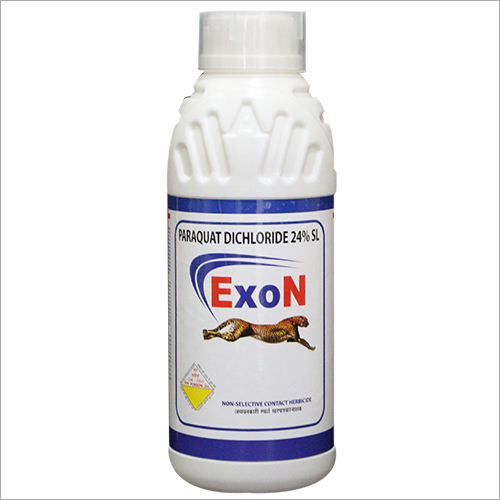
Tell us about your requirement

Price:
Quantity
Select Unit
- 50
- 100
- 200
- 250
- 500
- 1000+
Additional detail
Mobile number
Email
More Products in WEDICIDE Category
BIO BOTANICAL PESTICIDES
Price 725 INR / Liter
Minimum Order Quantity : 50 Liters
CAS No : 1910425
Storage : Room Temperature
Application : Agriculture
Physical State : Liquid
ORGANIC BOTANICAL PESTICIDES
Price 725 INR / Liter
Minimum Order Quantity : 50 Liters
CAS No : 1910425
Storage : Room Temperature
Application : Agriculture
Physical State : Liquid
BOTANICAL BIO INSECTICIDES
Price 725 INR / Liter
Minimum Order Quantity : 50 Liters
CAS No : 1910425
Storage : Room Temperature
Application : Agriculture
Physical State : Liquid
NEEM BASED PESTICIDES
Price 195 INR / Liter
Minimum Order Quantity : 50 Liters
CAS No : 1910425
Storage : Room Temperature
Application : Agriculture
Physical State : Liquid


 Send Inquiry
Send Inquiry
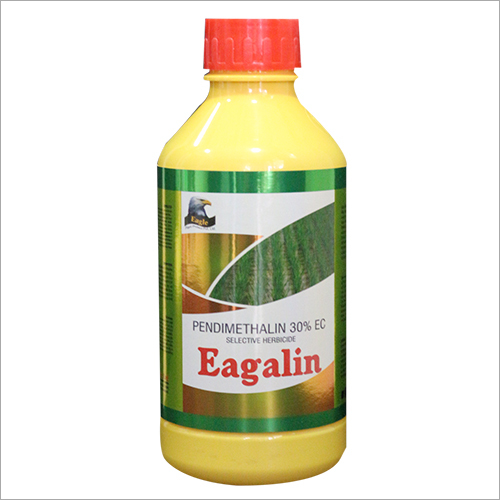
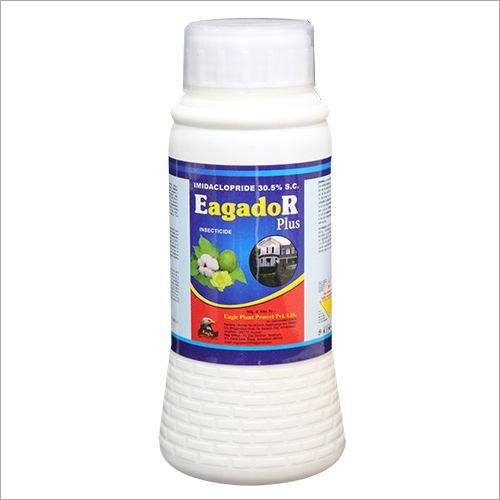
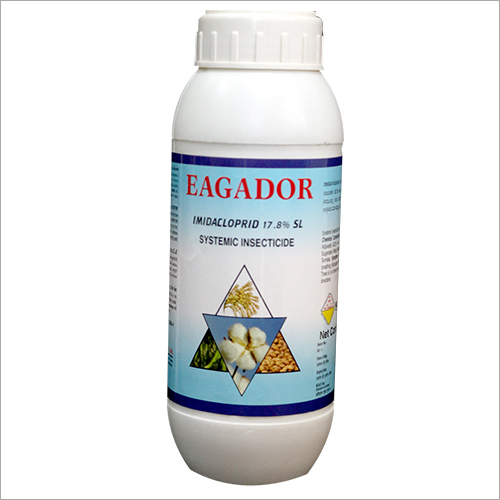
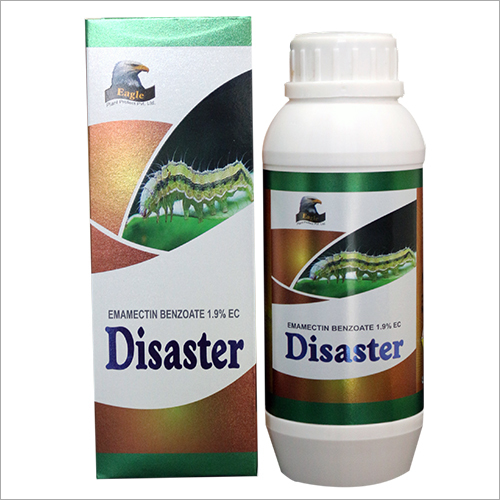

 Call Me Free
Call Me Free
